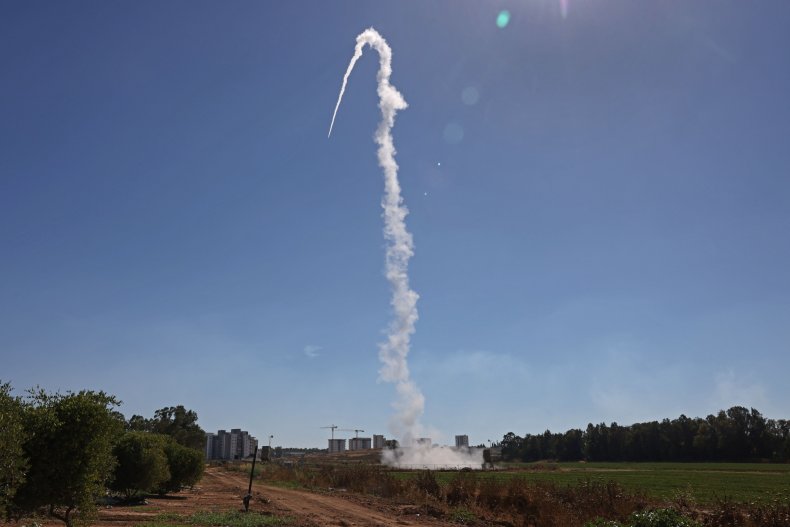BRENDAN COLE
Israel has successfully tested an airborne laser that can shoot down drones in a breakthrough that could complement the defense system which intercepted thousands of rockets fired from the Gaza Strip last month.
Head of military research and development at Israel's defense ministry, Brig. Gen. Yaniv Rotem, said a prototype laser was mounted on a civilian Cessna plane and shot down drones in various locations over the Mediterranean Sea in recent days.
"The ability to intercept and destroy threats from the air is groundbreaking," Rotem told reporters, "Israel is among the first countries to use such capabilities."
The prototype developed with Elbit Systems and the Israeli Air Force (IAF) was praised by Rotem as a "technological achievement," which provided a "critical step for further development," The Jerusalem Post reported.
During the tests, drones from around half a mile away were shot down, and Israel hopes to deploy a system in the future with a much greater range to intercept rockets, mortar rounds, and drones.
For the first time ever: the Israel MOD and @ElbitSystemsLtd and the IAF have successfully completed a series of interception tests employing an airborne, High-Power Laser system. Israel is among the first countries in the world to demonstrate such capabilities. 1/3 pic.twitter.com/F0Egg6HUI6— Ministry of Defense (@Israel_MOD) June 21, 2021
So far unnamed, the laser weapon could form part of Israel's multi-tier defense systems, which include the Iron Dome system that targets short-range rockets and the David's Sling system against ballistic missiles, enemy planes, and medium-to long range rockets.
Elbit makes C-Music, a defense system on aircraft whose lasers "blind" incoming missiles. Oren Sabag, a senior Elbit official, said the new laser weapon was similar but would destroy targets by heating them up so that they catch fire immediately.
Rotem said that the ministry wanted to have an airborne laser with an effective range of over 12 miles in around a decade. In the future, it is hoped that it could lead to a system that can destroy targets hundreds of miles away.
Also in development is a ground-based laser weapon with a range of five to six miles which would be operational in three to four years.
However, Rotem said the airborne version has the advantage of being able to intercept threats at high altitudes regardless of the weather, while also providing the ability to defend large areas.
The Post reported that the latest airborne system is not intended to be used against incendiary balloons from the Gaza Strip, where Israel targeted the Palestinian enclave's Hamas rulers during 11 days of fighting last month.
Tensions are still high since a cease-fire halted the conflict on May 21 and officials from Egypt have met with Hamas and Israeli officials to maintain an uneasy truce.
Last Thursday, Israel launched airstrikes on the Gaza Strip after activists mobilized by Hamas rulers had launched incendiary balloons into Israel for a third straight day, although there were no casualties reported, according to the BBC.
Newsweek has contacted the Israeli Defence Ministry for comment.
 Israel's Iron Dome aerial defence system is launched to intercept rockets from the Gaza Strip, above the city of Sderot, on May 18, 2021. Israel has tested an airborne laser system that could complement Iron Dome.MENAHEM KAHANA/GETTY
Israel's Iron Dome aerial defence system is launched to intercept rockets from the Gaza Strip, above the city of Sderot, on May 18, 2021. Israel has tested an airborne laser system that could complement Iron Dome.MENAHEM KAHANA/GETTY
No comments:
Post a Comment